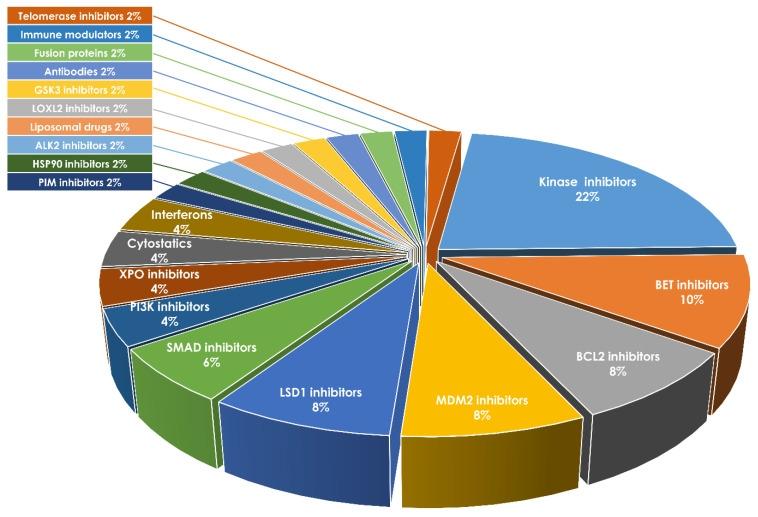This report has a nice graphic on current MPN research. There have been posts on this before too but this one is particularly colorful.
Some we know are here, the new Jak2 inhibitors, Momelotinib, etc . (the blue Kinase) Bomedemstat is a LSD1 inhibitor (dark blue)
One that is missing is Rusfertide ( hepcidin mimetic) So maybe this list is not complete.
--
Another very good summary of mutations vs risk in in here. Indication is TET2, DNMT3A are not large factors, as other posts have discussed. CHIP are mutations that are of "indeterminate potential":
"Mutations of ASXL1, IDH1/2, EHZ2 or SRSF2 are detected in every third PMF patient and are associated with shorter OS and leukemia-free survival [38]. With regards to fibrotic progression, no association with the CHIP-associated mutations TET2, ASXL1, DNMT3A was found; in contrast, mutations of SRSF2, U2AF1, SF3B1, IDH1/2, and EZH2 that are rarely found in CHIP showed a strong correlation with fibrotic progression [39]."
